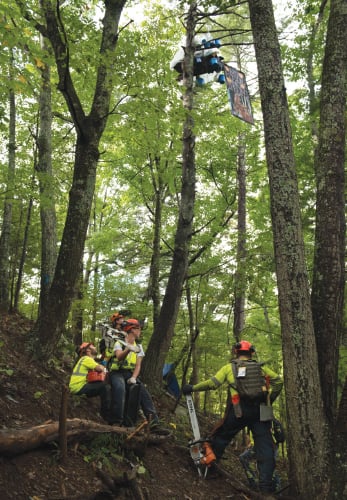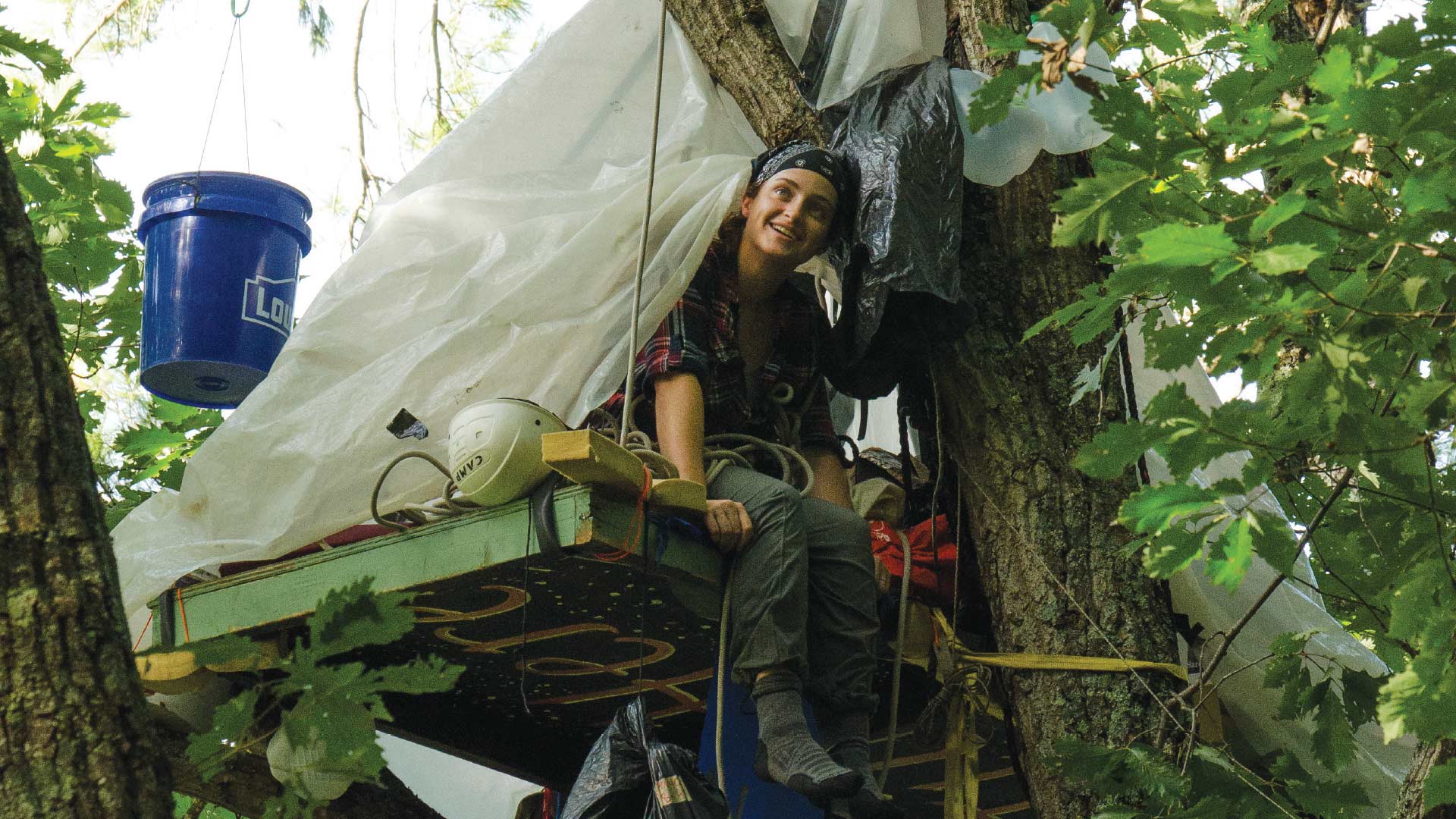A Tree-Sitter’s Perspective From 50 Feet Above the Mountain Valley Pipeline.
I’ve lived in the Blue Ridge Mountains for most of my life, often taking for granted the hiking trails, swimming holes, trout streams, and breathtaking beauty. Growing up, I never paused to consider the fragility of our forest ecosystem.
I also didn’t know much about the long and prevalent history of extraction and exploitation in Appalachia.
As a child, the value of these mountains was not in what could be exploited or made profitable. It was in the sights and sounds and discoveries I made in the forest. It was the first time I saw a brook trout while fishing. It was waking up to birds singing outside my window every morning. It was the speckled salamanders I found wriggling in streams and under logs. It was hearing the spring peepers at night and feeling the cold rush of water over my hands as I looked for smooth rocks at the bottom of streams.
I didn’t think about the price of these things. Nor did I know that there were people willing to destroy everything that was above ground in order to get to what was under it.
I am 24 years old now, and for over a month, I have been living in a tree platform in the path of the Mountain Valley Pipeline. Looking back, it is clear to me that this was the only thing left to do. Regulations have been ignored or altered to suit the interests of the pipeline. Our state agencies are not working for the people; they are working for the pipeline. Our governor, a self-proclaimed environmentalist, has turned his back on his own constituents.

I sat in these trees through Hurricane Florence. I was fully aware of the irony of enduring a hurricane, which was likely worsened by climate change, while fighting the extractive energy industry that is contributing to climate change. My tree platform and I weathered the storm. But millions of people’s lives have been upended. These extreme weather events are becoming more frequent as we charge ahead into a fossil-fueled future.
The fossil fuel industry is being allowed to steal shared resources from the rest of society. This industry has historically taken advantage of low-income and minority communities, and as a result, has perpetuated poverty and oppression in Appalachia.
So I am standing up for those communities by standing in the way of the pipeline, here in the trees near Elliston, Va, on one of the last sites that the pipeline companies have not cleared. I hope that people will see that we have the power to create change with our voices and our courage.
Throughout history, there are countless examples of small-but-dedicated groups of people who managed to create change against seemingly insurmountable odds.
At times it may feel easier to look the other way, especially when we realize the magnitude of the environmental and social issues we face today. Being able to sit back and ignore these problems is a privilege that is afforded to you (at least temporarily). Standing up to change them is a responsibility.
Many have asked if all of this is worth it—sitting alone on a tiny platform for weeks, trying to find creative ways to stretch my legs swarmed by bugs, drenched by rain, and sleeping on a hard wooden plank.
As I sit here, with security camped out in the road below me, the roaring of chainsaws around me, what we’re fighting for sometimes seems impossible and out of reach.
What if we fail?
But what if we don’t?
I’m up here because the alternative is to be complacent, and the cost of complacency is too much. Change is never going to happen if we keep playing by their rules and trying to ask politely. It’s time to stop playing nicely.
When we act out, when we don’t fall in line, that spark of resistance can ignite a movement—and those with money and power try everything to extinguish it.
I witness their efforts directly each day. When the pipeline companies and their allies send seven police vehicles (including K-9 units) around the clock for only two peaceful protestors, it tells me that they’re scared. If just two people can elicit such a response, imagine what 100 people could do.
If you allow yourself to acknowledge what is actually happening with this pipeline, then pretty soon that tug you feel to resist will become a pull. It will become impossible to ignore.
It’s hard to acknowledge what is happening here: a pipeline we don’t need, a pipeline that Virginians don’t want, is being built anyway across public and private lands. But we can’t ignore what is happening and just go on with our lives. This world takes so much from us. We can’t also let it take away our compassion, grit, and determination to fight for our future.
In these early morning hours, as I listen to the sound of the forest coming alive, I vow to keep fighting for a sustainable future for my Appalachian homeland.
We may lose, yes. But we lose so much more if we fail to show up in the first place.
You can learn more about Lauren Bowman Clontz’s tree-sit at Appalachians Against Pipelines‘s Facebook page.








